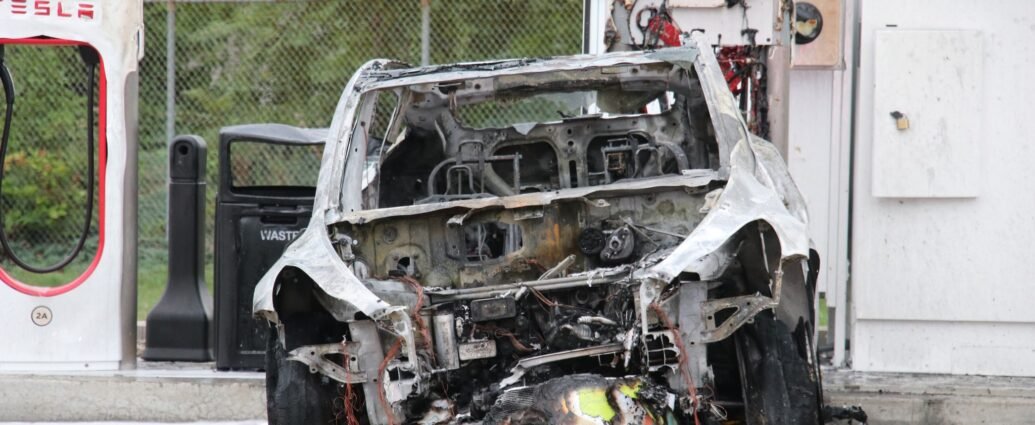A Tesla fire at a Supercharger Station in Mechanicsburg, Pennsylvania, has reignited concerns about the unique challenges of electric vehicle fires. The Upper Allen Fire Department responded to the blaze on Monday evening, finding the car engulfed in flames. Thankfully, no one was injured.
While electric vehicle fires are less frequent than fossil fuel-powered car, they present distinct hazards.

Battery Danger
The crux of the issue lies with the battery pack. Unlike fossil fuel fires, extinguished electric vehicle batteries can reignite due to a process called thermal runaway. This means the battery continues generating heat, requiring extensive cooling measures.
Captain Peter Rocco of Hackensack, New Jersey told NorthJersey.com, “It takes a long time to cool that down. We’re talking seven hours of an inch-and-¾ hose line just flowing water.”

His point is clear: a March fire in Hackensack required the department to stay on-site for hours, battling the battery’s self-heating with massive amounts of water. Additionally, smoke from EV fires poses a significant health risk.
Extinction Challenges
Standard extinguishers are ineffective against electric vehicle fires. If you encounter a burning EV, your top priority is to evacuate the vehicle immediately and call emergency services.

The Mechanicsburg incident serves as a stark reminder of the evolving fire safety considerations in our transition to electric vehicles. Further research and development are crucial to ensure firefighter safety and effective intervention methods for these unique fire scenarios.
Reference- NorthJersey.com, Facebook post from Upper Allen Fire Department, Futurism, The Verge






